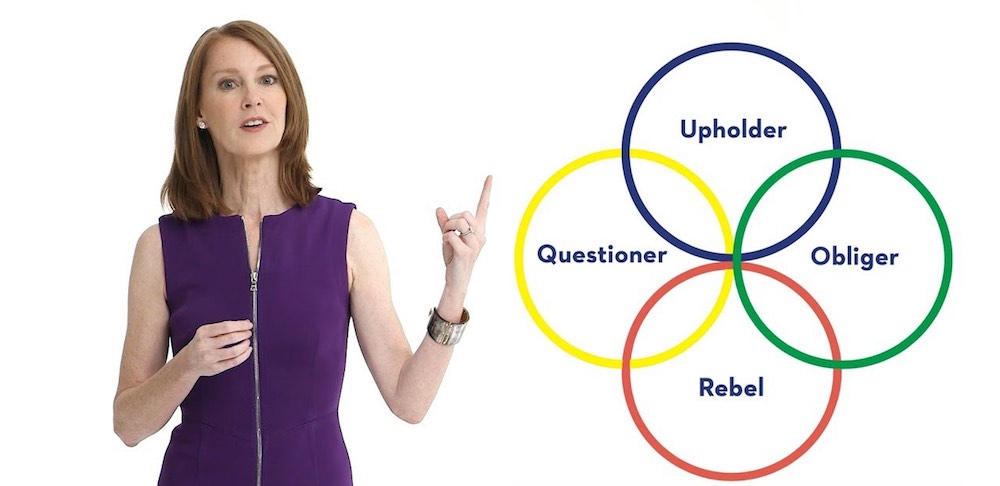
The Lesson: When researching happiness and how people develop habits to make a better life, Gretchen Rubin discovered that people fall into one of four dominant patterns – the upholder, the obliger, the questioner or the rebel. This behavioral tendency will influence your ability to develop habits with ease or difficulty because of how you respond to expectations. Do you embrace the rules? Do you resist? Do you need solid reasons before complying? Do you only comply when someone else is there to hold you accountable? Understanding your tendency towards expectations can help you manage your whole life in a more insightful, productive way—and it’s quite handy when communicating with or managing others (like our children) because now you know their pattern.
Notable Excerpt: “Upholders readily meet outer and inner expectations—they meet the work deadline, they keep the New Year’s resolution without much fuss… Questioners question all expectations—they’ll do it if they think it makes sense. They hate anything arbitrary or inefficient. Obligers readily meet outer expectations, but they struggle to meet inner expectations. The largest number of men and women fall into this category. Rebels resist all expectations—they want to do what they want, when they want, in their own time.”
The Speaker: Dubbed a “Happiness Guru”, best-selling author Gretchen Rubin started her career in law and was clerking at the Supreme Court when she realized she wanted to be a writer. To date, the Manhattan-based speaker has written several self-help guides, and indexes on the happiest places and practices in the world.
Podcast: Her top-ranking, award-winning podcast, “Happier with Gretchen Rubin” discusses happiness and good habits: Subscribe or hear more on iTunes, Spotify or Stitcher.
Books: Rubin is the author of “The Happiness Project”, which spent two years on the New York Times bestsellers list. Her books, including “The Four Tendencies”, “Happier at Home”, and “Better Than Before”, have sold almost three million copies worldwide in more than thirty languages.
(LISTEN to the inspiring interview below, which starts at 3:10)

Good Advice? SHARE It – Or Check Out More On Our Good Talks Page…




















